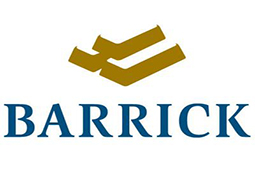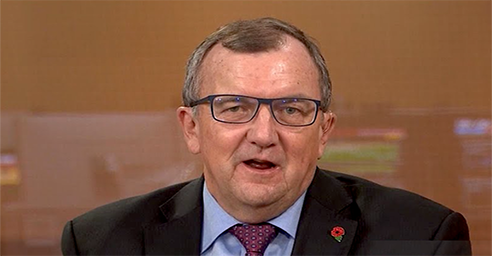
Barrick’s bid for Acacia an “appropriate” and “elegant” solution to Tanzania woes — CEO

The $285-million offer, considered by some analysts and Acacia’s minority shareholders as a low, would see the world's second largest gold miner buying the remaining 35% of Acacia it does not already own, at a discount.
“We’re not trying to exploit any particular situation,” Bristow told Bloomberg. “At the end of the day we do believe it’s a well-considered, fair and proper proposal that should be taken seriously.”
“We’re not trying to exploit any particular situation,” CEO Mark Bristow said referring to Barrick’s $285-million offer for Acacia Mining.
The proposed takeover, said Barrick last week, was made after realizing that the government of Tanzania was not prepared to deal directly with Acacia to settle their differences.
Acacia, the African country's No.1 gold producer, has been embroiled in a battle with Tanzania since 2017, when the government banned exports of unprocessed metal and slapped it with a $190 billion tax bill— equal to almost two centuries worth of revenue.
The company was also forced to cut output by a third from two of its three mines in the country — Bulyanhulu and Buzwag.
A "tragedy"
Since then, the relationship between Barrick and Acacia has been strained and progress moving an agreement forward has been “almost impossible,” Bristow acknowledged earlier this month.
“It’s a tragedy," he said. "We’re dealing with a complete breakdown of relationships.”
For about two years, Barrick has been leading negotiations with President John Magufuli’s administration, first under executive chairman John Thornton and, more recently, under Bristow.
The South African geologist, who spent decades finding and building his own mines in Africa, has been considered by many analysts as the only one who could effectively end the never-ending row.
Acacia has sought to resolve some of its issues with Tanzania through international arbitration.
A framework deal reached in February proposed that Acacia would pay $300 million to settle the tax claims and agree to split returns from operations with the country going forward. But Acacia has maintained its position that before approving any agreement its board should review it first.
“In our opinion, the bid value reflects the $300 million tax payment that has been negotiated between Barrick and the government of Tanzania, which becomes payable once a resolution is ratified,” Jefferies’ analysts wrote last week.
Acacia, which has said that much of the tax dispute stems from the period when the Canadian mining giant fully owned it, has sought to resolve some of its issues with Tanzania through international arbitration.
According to sources close to the matter, Barrick may choose to postpone any decisions on the proposed takeover until then.



Trump weighs using $2 billion in CHIPS Act funding for critical minerals

Codelco cuts 2025 copper forecast after El Teniente mine collapse

Electra converts debt, launches $30M raise to jumpstart stalled cobalt refinery

Barrick’s Reko Diq in line for $410M ADB backing

Abcourt readies Sleeping Giant mill to pour first gold since 2014

Nevada army depot to serve as base for first US strategic minerals stockpile

SQM boosts lithium supply plans as prices flick higher

Viridis unveils 200Mt initial reserve for Brazil rare earth project

Tailings could meet much of US critical mineral demand – study

Kyrgyzstan kicks off underground gold mining at Kumtor

Kyrgyzstan kicks off underground gold mining at Kumtor

KoBold Metals granted lithium exploration rights in Congo

Freeport Indonesia to wrap up Gresik plant repairs by early September

Energy Fuels soars on Vulcan Elements partnership

Northern Dynasty sticks to proposal in battle to lift Pebble mine veto

Giustra-backed mining firm teams up with informal miners in Colombia

Critical Metals signs agreement to supply rare earth to US government-funded facility

China extends rare earth controls to imported material

Galan Lithium proceeds with $13M financing for Argentina project

Kyrgyzstan kicks off underground gold mining at Kumtor

Freeport Indonesia to wrap up Gresik plant repairs by early September

Energy Fuels soars on Vulcan Elements partnership

Northern Dynasty sticks to proposal in battle to lift Pebble mine veto

Giustra-backed mining firm teams up with informal miners in Colombia

Critical Metals signs agreement to supply rare earth to US government-funded facility

China extends rare earth controls to imported material

Galan Lithium proceeds with $13M financing for Argentina project

Silver price touches $39 as market weighs rate cut outlook


















